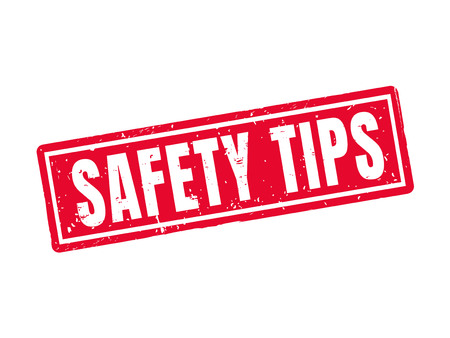Understanding the Challenges of UK Winter Driving
When winter sets in across the UK, motorists face a unique set of challenges that can significantly impact both vehicle performance and road safety. The British winter is notorious for its unpredictability, blending icy roads, heavy rainfall, and extended periods of reduced daylight into a season that demands heightened awareness and preparation from every driver. Unlike some other regions, the UKs milder but wet climate often leads to black ice—an almost invisible hazard on tarmac—and persistent drizzle or downpours can cause standing water and increased risk of aquaplaning. Coupled with shorter days and long, misty nights, visibility is often at a premium.
| UK Winter Challenge | Impact on Driving |
|---|---|
| Icy Roads & Black Ice | Reduces tyre grip and increases stopping distances; higher risk of skidding |
| Heavy Rainfall & Flooding | Aquaplaning hazards; impaired braking efficiency; potential for engine damage |
| Reduced Daylight Hours | Poor visibility; increased likelihood of accidents during commutes |
These conditions mean that even familiar routes can quickly become treacherous. Potholes hidden by surface water, sudden fog patches on rural lanes, and frosted windscreens all add layers of complexity to your daily drive or weekend adventure. Understanding these environmental factors is the first step in preparing your car for the months ahead—ensuring not only your own safety but also that of your passengers and fellow road users. In this guide, we’ll walk you through essential checks and maintenance tips to keep your vehicle ready for whatever the British winter throws your way.
2. Essential Winter Car Maintenance Checks
As the British winter brings shorter days, icy mornings, and unpredictable downpours, ensuring your car is prepared for these conditions is crucial for both safety and comfort during your travels. Here’s a practical checklist focusing on the key areas every UK driver should inspect before hitting the road this winter.
Battery Health
Cold weather can put extra strain on your car’s battery, increasing the risk of breakdowns. It’s wise to:
- Test the battery voltage – Most garages will do this as part of a winter check-up.
- Check for corrosion around terminals and clean if necessary.
- Replace old batteries – If your battery is over 5 years old or struggling to hold charge, consider replacing it to avoid being stranded on a frosty morning.
Tyre Condition
Your tyres are your only contact with the road, so their condition is vital in wet or icy weather. Make sure to:
| Check | UK Recommendation |
|---|---|
| Tread Depth | Legal minimum is 1.6mm, but at least 3mm is recommended for winter grip. |
| Tyre Pressure | Refer to your vehicle handbook and check regularly – cold weather can lower pressure. |
| Tyre Condition | Look for cracks, bulges, or embedded objects; replace if needed. |
| Winter Tyres | If you frequently drive in rural or hilly areas, consider switching to winter tyres for improved traction. |
Windscreen Wipers & Washer Fluid
Visibility is often compromised during UK winters by rain, sleet, and salt from gritted roads. Be sure to:
- Inspect wiper blades for splits or wear; replace annually or if they smear.
- Top up washer fluid with an additive rated for freezing temperatures (down to at least -10°C).
- Keep a spare bottle of fluid in the boot for longer journeys or camping adventures.
Antifreeze Levels & Coolant System
A frozen engine can lead to expensive repairs. To prevent this:
- Check antifreeze concentration; most UK vehicles require a 50/50 mix of water and antifreeze for protection down to -34°C.
- Examine hoses and radiator for leaks or perishing.
- If unsure, ask your local garage to do a quick coolant test as part of their seasonal checks.
Your Winter-Ready Checklist at a Glance:
| Item | Action Needed |
|---|---|
| Battery | Test voltage, check age & clean terminals |
| Tyres | Tread depth, pressure & condition; consider winter tyres |
| Wipers/Washer Fluid | Replace blades & use winter-grade fluid |
| Antifreeze/Coolant | Check mix ratio & inspect system for leaks |
Taking time now to run through these essential checks ensures you’ll be ready to tackle whatever the Great British weather throws at you—whether you’re heading out on a remote camping adventure or just commuting across town.

3. Preparing Your Car’s Exterior and Interior
As the British winter rolls in, prepping your vehicle’s exterior and interior is crucial to keeping your adventures safe and stress-free. The combination of road salt, grit, and damp weather can take its toll, but with some savvy preparation, you can protect your pride and joy for many miles to come.
Protecting Paintwork from Salt and Grit
Salt and grit are spread liberally on UK roads during winter to combat ice, but they can wreak havoc on your car’s paintwork and undercarriage. To keep your vehicle looking its best:
- Regularly Wash Your Car: Aim for a thorough clean at least once a fortnight, paying close attention to wheel arches and the underbody where salt accumulates.
- Apply a Quality Wax or Sealant: This adds an extra layer of protection against corrosive elements.
- Touch Up Chips Promptly: Cover any paint chips with touch-up paint to prevent rust from taking hold.
| Task | Frequency |
|---|---|
| Washing (incl. underbody) | Every 1-2 weeks |
| Waxing/Sealant Application | Every 2-3 months |
| Inspect for Paint Chips | Monthly |
Ensuring Effective Demisting
Misted windows are a common frustration for UK drivers during the colder months. Stay safe and maintain visibility with these tips:
- Keep Windows Clean Inside & Out: Dirt attracts moisture, so regular cleaning helps reduce fogging.
- Check Cabin Air Filters: Replace if clogged to improve airflow and demisting performance.
- Carry a Microfibre Cloth: Ideal for quickly wiping down glass before setting off on frosty mornings.
Keeping Your Interior Organised for Winter Adventuring
A tidy cabin isn’t just about comfort—it’s key when you’re living the self-drive, camping lifestyle. Use these hacks to keep things organised:
- Add Boot Liners or Rubber Mats: These help trap mud, snow, and grit from boots and paws after bracing walks in the countryside.
- Create a Winter Essentials Kit: Include items like de-icer, scraper, torch, gloves, blanket, snacks, and a flask for those unexpected delays or impromptu picnics.
| Winter Essential | Description |
|---|---|
| De-icer & Scraper | Quickly clears ice from windows |
| Torch & Spare Batteries | Navigating dark laybys or campsites |
| Blanket & Gloves | Keeps you warm if stranded |
A bit of forward planning goes a long way—protect your car inside and out, so you’re always ready for that next spontaneous road trip or wild camp across Britain’s wintry landscapes!
4. Stocking Up on UK Winter Car Essentials
As any seasoned British driver knows, winter on UK roads can be unpredictable and challenging. Beyond basic maintenance, it’s vital to have a well-stocked kit of essentials in your car to tackle icy mornings, sudden snow flurries, or unexpected breakdowns. Here are the must-have items every UK motorist should carry when winter hits:
Critical Winter Car Essentials
| Item | Description | Why It’s Essential |
|---|---|---|
| British-Standard Ice Scraper | Specifically designed for tough UK frosts and compact ice on windscreens. | Keeps your visibility clear during morning starts. |
| De-icer Spray | A fast-acting formula for melting ice on windows and locks. | Saves time and effort; prevents damage from scraping too hard. |
| High-Visibility Vest (EN ISO 20471 Standard) | A fluorescent vest with reflective stripes meeting UK safety standards. | Essential if you break down on busy roads or motorways, especially at night or in low light. |
| Emergency Blanket | A compact foil blanket that retains body heat. | Keeps you warm if stranded waiting for roadside assistance in freezing temperatures. |
| Torch (with spare batteries) | A reliable LED torch or headlamp suitable for dark, rural lanes and emergency situations. | Helps you see (and be seen) if you need to check under the bonnet or change a tyre after dark. |
Extra Handy Items for the Savvy Driver
- Jump leads – for flat batteries in cold snaps
- First aid kit – always good practice, winter or not
- Bottle of water and some snacks – in case youre stuck longer than expected
Pro Tip:
Keep these essentials organised in a boot bag or dedicated box so theyre easy to grab when needed. Remember, a little preparation goes a long way towards keeping your winter journeys safe and stress-free across Britain’s diverse landscapes.
5. Tips for Safe and Comfortable Winter Road Trips
Embarking on a winter road trip across the UK can be an enchanting experience, with frost-dusted landscapes and cosy countryside pit stops. However, safety and comfort should always come first. Here are some essential tips to help you navigate British roads during the chilly months.
Reduce Your Speed
Winter conditions often mean slippery surfaces, whether from rain, sleet, or ice. Slow down—driving at a reduced speed gives you more time to react if something unexpected happens. On frosty mornings or after snowfall, country lanes and less-travelled B-roads can be particularly treacherous.
Maintain Safe Braking Distances
Stopping distances increase dramatically in wet or icy conditions. Always allow extra space between you and the vehicle ahead. Here’s a handy reference:
| Road Condition | Recommended Stopping Distance (at 30 mph) |
|---|---|
| Dry | 23 metres (75 feet) |
| Wet | 46 metres (151 feet) |
| Ice/Snow | Up to 230 metres (755 feet) |
Plan Your Route Wisely
The UK is notorious for sudden weather changes, especially in rural and hilly areas. Before setting off, check local forecasts and traffic reports. Opt for gritted A-roads and motorways when possible, as these are prioritised for snow clearance and salting. Avoid remote backroads if severe weather is expected.
Useful Resources for Route Planning:
- Met Office Weather Warnings: Stay updated on regional alerts.
- National Highways Traffic Alerts: For live updates on road closures and delays.
- Your Sat Nav or Smartphone App: Keep maps updated and enable live traffic data.
Packing Essentials for Comfort and Safety
A well-prepared winter kit keeps you both safe and snug if you’re delayed or need to wait out bad weather. Consider packing:
- Warm blankets or sleeping bags
- A flask of tea or coffee
- Torch with spare batteries
- Snacks (think flapjacks or oat bars for energy)
- An extra phone charger or power bank
- A reflective warning triangle and high-vis vest (required by law in some European countries; good practice here too)
Your Winter Driving Checklist
- Reduced speed on icy stretches
- Double-checked braking distances
- Routes planned around weather warnings
- Emergency kit packed in boot
- Vehicle fully de-iced before departure
By following these practical tips tailored for British roads, you’ll not only stay safer but also enjoy the freedom of winter driving—whether it’s a weekend escape to the Lake District or a festive visit to family in the Scottish Highlands.
6. Emergency Preparedness for Unexpected Situations
Even the best-prepared motorists can find themselves stranded during a harsh UK winter. Knowing exactly what to do in these situations is crucial for your safety and peace of mind. Here’s a practical guide to help you manage unexpected breakdowns or emergencies, all while keeping British roadside etiquette in mind.
What to Do If You’re Stranded
- Stay Calm and Visible: Turn on your hazard lights immediately and, if safe, place a warning triangle at least 45 metres behind your car (never use this on motorways).
- Stay Inside Your Vehicle: Unless there’s a risk from fire or traffic, it’s generally safest to stay inside with your seatbelt fastened, especially on busy roads or motorways.
- Keep Warm: Use blankets, extra clothing, or sleeping bags from your emergency kit. Run the engine sparingly to conserve fuel but avoid running it continuously.
- Avoid Draining Your Battery: Use interior lights rather than the radio or heater fan if you need light.
Essential Local Emergency Numbers
| Service | Number | When to Call |
|---|---|---|
| Police/Fire/Ambulance (Emergency) | 999 | If there is immediate danger or injury |
| Non-Emergency Police | 101 | For non-urgent police matters |
| NHS Non-Emergency Medical Advice | 111 | If you need medical advice but it’s not an emergency |
| Your Breakdown Service Provider (AA, RAC, Green Flag etc.) | Your Membership Number & Helpline | If you require roadside assistance or recovery |
Contacting UK Breakdown Services: Etiquette Matters
- Have Your Details Ready: Keep your membership card and relevant information accessible in your glove box.
- Description Helps: Be ready to describe your location accurately – use motorway markers or GPS coordinates where possible.
- Manners Count: Stay courteous and patient; winter weather means services are often stretched thin across the country.
- Follow Instructions: Always follow the guidance given by call handlers and breakdown personnel for your own safety.
Your Winter Roadside Emergency Kit Checklist:
| Must-Have Items for UK Winter Emergencies | |
|---|---|
| Torch (with spare batteries) | Tow rope & jump leads |
| Warm blankets/sleeping bag | Bottled water & non-perishable snacks |
| Hi-vis vest/jacket | Ice scraper & de-icer spray |
| First aid kit | Mobile phone charger/power bank |
| Pocket-sized road atlas (in case of GPS failure) | |
A Final Word on Staying Safe Until Help Arrives:
If you find yourself stuck in remote countryside lanes or exposed moorlands—a classic UK scenario—always prioritise warmth and visibility. Make use of local breakdown services, keep communication lines open, and never hesitate to ask for help from passing drivers if it’s safe to do so. With the right preparation and a quintessentially British sense of calm, you’ll be well-equipped to handle whatever winter throws your way.


